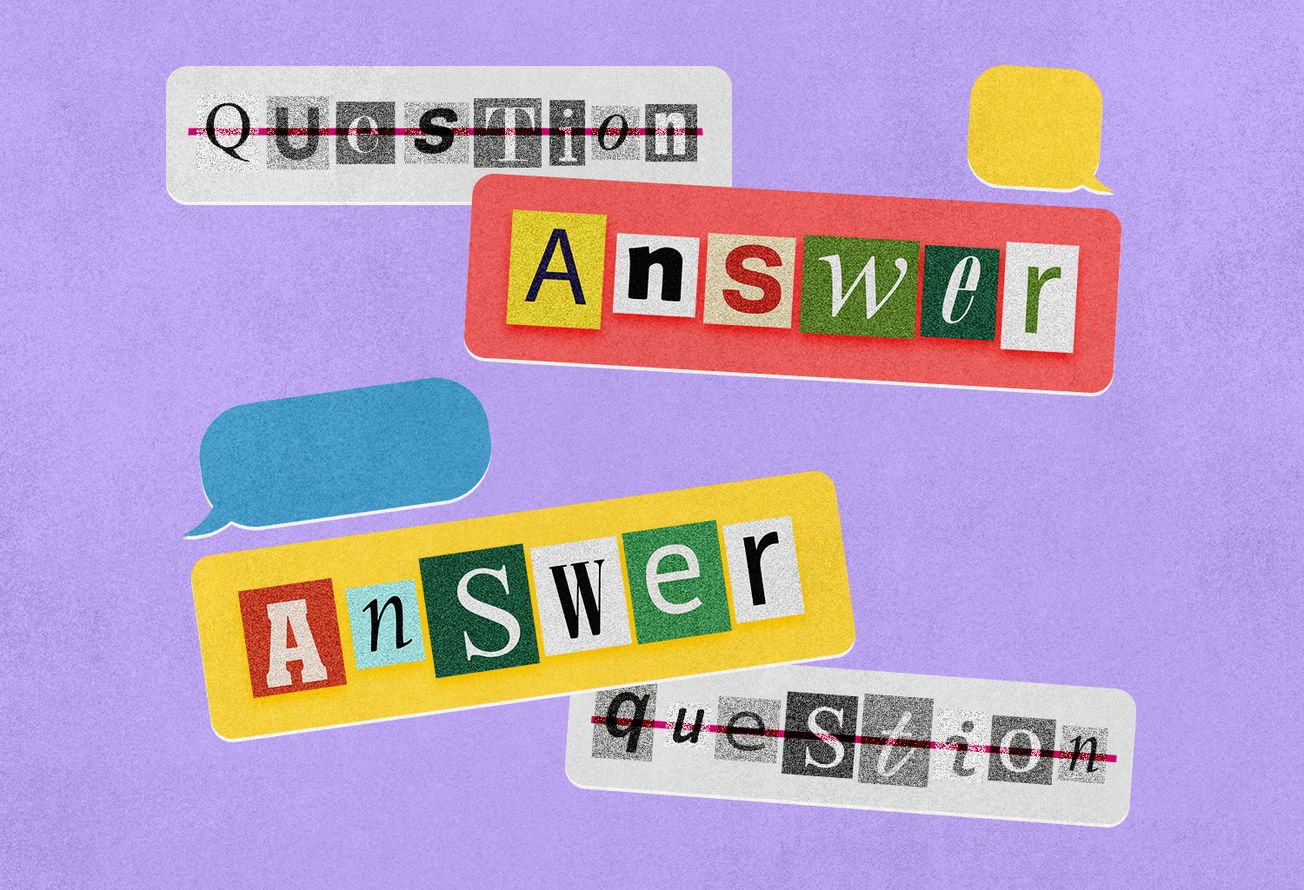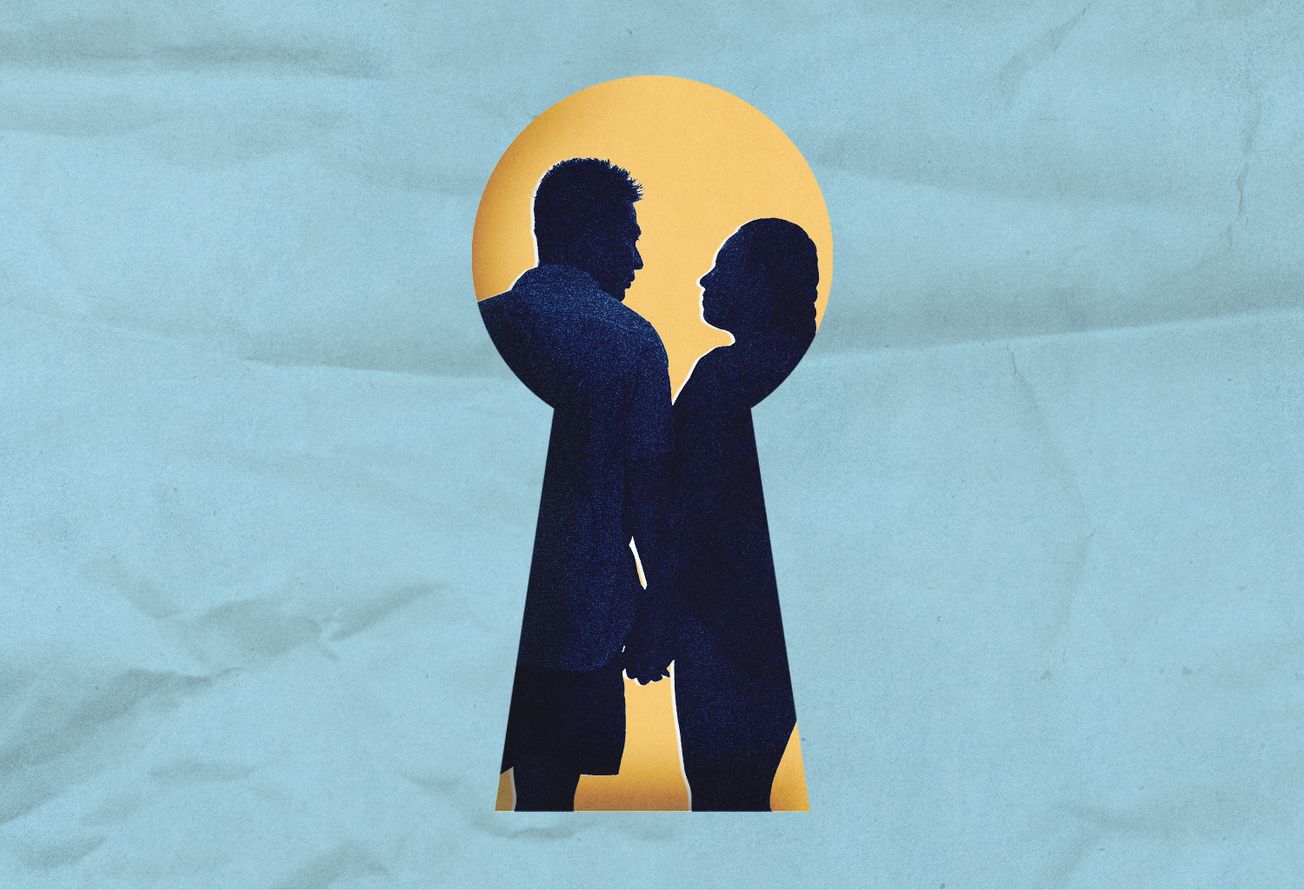If there is one thing my partner loves more than a hot plate of food in the morning and a goodnight drink, it's watching old reruns of Jeopardy! on YouTube. Oddly, I never enjoyed watching the supposedly iconic quiz show. Yet, whenever I reach into the deep recesses of my memory to retrieve a certain kind of wisdom, I only think of Jeopardy!.
This could have been revelatory to a younger me: a non-binary person exploring the eternal world of queerness. The quiz show curiously reverses the relationship between a question asked and an answer given, much like what I did on my journey of exploring my queerness.
When I was younger, the rejection I faced was daunting as the world still treats non-binary experiences of gender with disavowal and mockery. I started my exploration of gender with questions like, "What is non-binary?" or "Am I non-binary?" only to realise much later that these questions were not helpful to me; they could never be. Much like Jeopardy!, I already had the answer—to be non-binary is to imagine the infinite possibilities of being outside the gender binary. It is a journey, not an identity, that can be rigidly defined. It is also not a categorisation that all gender non-conforming people must fit into.
I could argue that I realised I was non-binary only four years ago, and the years since I started describing myself in this way were full of joy and ecstatic authenticity. After all, isn't that what is expected from narratives of queerness? Linearity. Authenticity. A beginning and an end. As if we were nothing before and everything afterwards. As if there is a before and after that we have to conjure in our lives and package it into a gift we give to the world for letting rather than allowing us to exist.
The truth is, I knew I experienced my gender differently before I even had the language to describe it. I did not realise it consciously, perhaps, but I knew it in the discomfort I felt with expectations of gender conformity thrust upon me since adolescence. I knew it in the drunken joy I felt the first time I looked at myself in the mirror with my short hair shaved on the sides like a teenage boy's, even if I did not really feel like I was a boy. The way I experienced my gender always existed outside of the possibilities handed down to me, like clothes that scratch or don't fit quite right.
Does that mean that now that I have a word that comes close to describing my experience of gender, I feel liberated from doubt? Or do I feel completely seen by a term I choose to describe me? Not really. It has taken me a long time to acknowledge that it is alright to feel that way and to put my unease to rest. There is no one definition of non-binary and no "authentic" way of being non-binary either.
In my experience, living beyond the binary means living a ceaseless journey of curiosity and bewilderment. I understand it's natural to have a knee-jerk desire to categorise experience, even when it is your own. However, there is more tranquillity in the free-fall of never being certain, in believing that your experience is more expansive than the language that could describe it. I continue to learn to embrace rather than resist this doubt.
I know that the world is lurching and morphing in ways and at a speed that feels preposterous, dizzying, and nauseating—every day is inundated with news of disaster and precarity. In this environment of constant change, it is normal to desire a sliver of certitude, to cling stronger and harder to the parts of yourself that can bring you certainty, joy, and community. The absence of vocabulary grates when we crave shared understanding. We desire our experience to take the shape of the words used to describe it rather than the other way around. It is one thing to be pushed into a box of definition by others, but it is a whole different ball game to do it to yourself. I have struggled with stress and anxiety trying to do exactly that.
In the last few years, I have realised that embracing our own infinity allows us to offer it to others, and there is no better way to find comfort than to sit with the discomfort of doubt.
If you're on the same journey, I'd gently remind you that being able to identify your own experience on the non-binary spectrum and communicate it to others is an endless journey of exploration; it is not a quantifiable destination. Take things slow, stop and smell the roses, and let each day you continue to exist be enough reason to celebrate.
I wish the younger me knew that sometimes it is alright not to be everything, everywhere, all at once. In my early days of sharing my experience of gender in words, people would often ask me questions that I did not know the answers to, and it would make me stutter.
"If you are non-binary, how would you identify your sexuality now?"
"Why don't you correct people when they misgender you?"
"If you are non-binary, shouldn't your partner identify as pansexual? Doesn't it feel invalidating of your identity if your partner does not identify as pansexual?"
I felt like an imposter, as if my inability to answer directly reflected the fraud I felt inside. My daily affirmation was to remind myself that the world is not solely my creation, and it is not my responsibility to decipher it for others. It is alright not to have all the answers. I continue to exist, and that is enough.
Now, I look for opportunities in questions that baffle me. It is an excellent way to expand my horizons and imagine different worlds our queerness promises us. I congratulate myself for being on this journey, and I know that because of you, I am not alone in it.
...
I invite you to try something. The next time someone asks, "What is non-binary?" say, "It's the correct answer."






